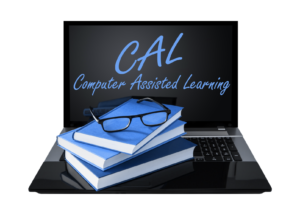The future of computer-assisted training guarantees transformative affects on how college students learn, instructors teach, and academic structures operate. As digital applied sciences proceed advancing, their integration into academic environments ought to lead to enormously personalized, accessible, and enticing gaining knowledge of experiences. Here are some tendencies and probabilities shaping the future of computer-assisted education:

1. Personalized Learning Experiences
Adaptive Learning Systems: AI-driven adaptive mastering structures analyze a student’s strengths, weaknesses, and gaining knowledge of pace, then customise the content material to meet person needs. These structures supply customized lessons, exercises, and feedback, assisting college students draw close principles in methods that common techniques can’t.
Data-Driven Insights: Learning analytics music pupil overall performance and engagement, supporting instructors tailor interventions for college students desiring extra help or challenge. This statistics allows educators to make informed, real-time changes to enhance getting to know outcomes.
2. Immersive and Interactive Learning
Virtual Reality (VR) and Augmented Reality (AR): VR and AR allow college students to discover historic sites, habits scientific experiments, or have interaction with complicated fashions in a controlled digital space. These applied sciences can make getting to know extra engaging, memorable, and accessible, mainly for visible or hands-on learners.
Gamification: Incorporating sport elements, like points, levels, and rewards, motivates college students and enhances engagement. Gamified studying can make summary topics like math or science greater approachable, encouraging perseverance thru challenges.
3. Enhanced Accessibility and Inclusivity
AI-Enabled Accessibility Tools: Speech-to-text, text-to-speech, and translation equipment make getting to know substances greater reachable for college students with disabilities or language barriers. These equipment can enhance inclusivity via permitting all students, regardless of history or ability, to have interaction successfully with the content.
Remote and Hybrid Learning Support: Computer-assisted training equipment supply flexibility in getting to know areas and schedules. Online structures make training greater available to college students in faraway or underserved areas, supporting bridge geographic and socioeconomic divides.
4. Teacher Empowerment and Support
Automated Administrative Tasks: AI can streamline grading, attendance, and records administration tasks, giving instructors extra time to center of attention on instructing and interacting with students.
Professional Development and AI Support: AI-driven teaching equipment can analyze educating techniques and furnish feedback, assisting teachers’ continuous improvement. Tools for lesson planning and content material advent additionally decrease workload, permitting instructors to commit extra time to customized scholar interaction.
5. Lifelong and Continuous Learning
Micro-Credentials and Skill-Based Learning: As jobs evolve, college students and authorities more and more searching for bendy studying pathways that provide micro-credentials for unique skills. Computer-assisted training systems can provide modular guides and certifications that make upskilling and reskilling on hand during a person’s life.
AI-Powered Mentoring: With AI mentors, newcomers can obtain guidance, profession advice, and ability assessments based totally on their development and goals, making lifelong studying extra sustainable and for my part meaningful the future of computer-assisted education.
6. Ethical Considerations and Data Privacy
Data Privacy and Security: With sizeable records accumulated on students, defending their privateness is paramount. Regulations, facts encryption, and transparency about statistics use are imperative to retaining have faith in computer-assisted education.
Equity in Access: Ensuring equitable get right of entry to to computer-assisted gaining knowledge of resources, inclusive of high-speed internet, dependable devices, and technical support, is crucial to keep away from widening instructional disparities.
7. AI and Machine Learning Advancements
Intelligent Tutoring Systems: Future wise tutoring structures may want to end up even extra nuanced in appreciation students’ emotional states, engagement levels, and gaining knowledge of styles, adapting to furnish the most fantastic guide in real-time.
Predictive Analytics for Student Success: By examining traits in pupil performance, predictive analytics can assist perceive at-risk college students early on, enabling interventions that can maintain them on track.
The future of computer-assisted training ought to redefine the lecture room experience, making it greater personalized, efficient, and inclusive. If applied thoughtfully, these developments have the viable to put together college students for a hastily evolving world with the aid of equipping them with the skills, flexibility, and essential questioning wished to succeed.
